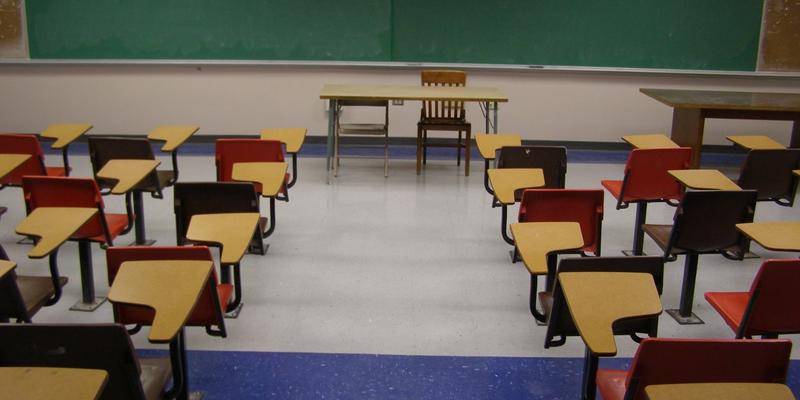Competing Bills Aim To Tackle Ga.’s ‘Teacher Dropout Crisis’

Two bills introduced by Republican senators are attempting to tackle what education officials call the state’s teacher dropout crisis.
Karen Apricot / flickr.com/karenapricot
Two competing bills in the Georgia Senate attempt to tackle what education officials call the state’s teacher dropout crisis. Each bill proposes reducing the percentage of a teacher’s evaluation that’s based on “student growth,” which includes test scores.
Currently student growth makes up at least 50 percent of a teacher’s review. SB 355, sponsored by Sen. William Ligon, R-Brunswick, would change that to 10 percent. SB 364, sponsored by Sen. Lindsey Tippins, R-Marietta, would change it to 30 percent.
“I don’t agree with 10 percent,” Tippins said. “I think that’s too low. Our core business is student achievement, and I can probably live with about a third of it being determined by test scores.”
State data compiled by the Georgia Department of Education shows that 47 percent of the Georgia’s public school teachers leave the profession in five years. The department surveyed teachers at the end of 2015 to find out why the turnover rate is so high. Teachers listed the number and emphasis of mandated tests as the top reason for leaving. The teacher evaluation system was the second reason.
“We really need to re-clarify the purpose of the teacher evaluation,” Tippins said. “It should be used as a tool of continuous improvement to build more competent and higher-performing teachers. I don’t mean everyone’s failing, but I think everyone ought to be getting better at what they do.”
The evaluation system was developed as part of Georgia’s Race to the Top grant. The federal education program incentivized states to develop evaluation systems that included student growth models to help teachers improve instruction. The state piloted the evaluations during the 2012-2013 school year. The new method became state law in 2013.
Teachers’ groups, like the Georgia Association of Educators, have expressed concern about the law. Because the law says student growth has to account for at least 50 percent of a teacher’s evaluation, the organization says a school district could theoretically use the scores for up to 100 percent of a teacher’s review if it chooses. But the GAE supports the Senate bills’ attempts to minimize that percentage.
“Overall, we are very pleased to see these efforts to address deficiencies in the evaluation process,” GAE president Syd Chapman said in a statement. “We will continue to work with all legislators interested in helping reach this goal.”
Both of the Senate bills have been referred to the education committee for consideration.
9(MDAxODM0MDY4MDEyMTY4NDA3MzI3YjkzMw004))








